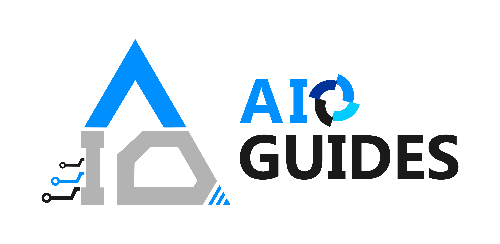Big Data Analytics in Healthcare: The Patient Care

Introduction to Big Data Analytics in Healthcare
The healthcare sector is experiencing an extreme modification, with big information analytics recreating a key role in shaping its destiny. Integrating Big Data Analytics in Healthcare contracts improved patient results, operating efficiency, and groundbreaking study options.

The Evolution of Big Data in Healthcare
Big data has evolved greatly in healthcare from its early adoption to current trends. Originally, healthcare data was primarily used for basic record-keeping and patient administration. Today, it is at the vanguard of predictive analytics and personalized treatment.
Essential Advantages of Big Data Analytics in Healthcare
Big Data Analytics in healthcare dramatically improves patient maintenance by allowing more precise and rapid diagnoses, personalized therapy plans, and adequate condition control. It significantly lowers healthcare expenses through predictive analytics and optimized help share. Further, big data enables groundbreaking medical analysis, coaching to creative therapies and enhanced insight into intricate health needs.
Big data analytics offers numerous benefits:
Improved Patient Outcomes: By studying extensive portions of data, healthcare providers can identify effective treatments more quickly and accurately.
Cost Reduction: Big data helps identify cost-saving opportunities and reduce wastage in the healthcare system.
Enhanced Research: Investigators can use big data to discover new wisdom into conditions and their remedies.
Challenges in Implementing Big Data Analytics
Implementing big data analytics in healthcare presents several challenges. Firstly, data solitude and safety are major concerns, as managing acute patient information needs a rigid commitment to lawful and moral norms. Secondly, the light book and type of data, including amorphous data from different origins, pose significant challenges in data governance and integration.

Despite the benefits, there are challenges:
Data Privacy Concerns: Safeguarding patient data is important, and providing solitude is a considerable challenge.
Technical Challenges: The sheer volume and sophistication of healthcare data offer technical limitations.
Integration with Existing Systems: Integrating new information analytics answers with living healthcare IT systems can be challenging.
Case Studies: Thriving Applications of Big Data in Healthcare
Big data has already shown success in areas like:
Predictive Analytics in Patient Care: Using big data to expect patient results and sewer medicines.
Managing Chronic Diseases: Exploring ways to manage better and minister established requirements.
The Function of Machine Learning and AI in Healthcare Data Analysis
The function of Machine Learning (ML) and Artificial Intelligence (AI) big data analytics in healthcare study is transformative and multifaceted. ML and AI algorithms are trained at processing extensive quantities of data quickly, finding ways and wisdom that humans power miss. They allow predictive analytics, which can predict forbearing effects, recognize high-risk patients, and recommend preventative actions. AI is increasingly used in diagnostic methods, from interpreting medical ideas to determining biomarkers for difficult conditions.

Machine knowledge and AI are revolutionizing healthcare data investigation:
AI-driven Diagnostics: AI algorithms can analyze conditions from imaging data with improving precision.
Predictive Modeling: AI measures indicate forbearing bets and results, improving preventative care.
Data Security and Ethical Considerations
Data Security and Ethical Considerations in big data analytics are essential in healthcare. Securing confidentiality and guarding patient information is critical to maintaining faith and complying with severe rules like HIPAA. Ethically, it’s vital to use data responsibly, bypassing tendencies in AI algorithms and ensuring that data study benefits patients without intruding on their solitude or independence. As technology grows, continuous care and adaptive systems are needed to protect against violations and abuse of acute health data.
Protecting forbearing data and honest use of information is necessary:
Protecting Patient Privacy: Ensuring the security and confidentiality of patient data is a top focus.
Ethical Use of Data: Healthcare providers must prioritise utilizing patient data.
Future Trends in Big Data Analytics for Healthcare
Future trends in Big Data Analytics for Healthcare point toward an era of more personalized and predictive medicine. Advancements in AI and device education are expected to show more exact diagnostic tools and therapy programs tailored to particular hereditary shapes. Integration of wearable technology and IoT gadgets will deliver real-time fitness monitoring, allowing aggressive control of established requirements. Furthermore, the use of big data is likely to improve telemedicine, making healthcare more convenient and efficient. Combined data communication across media and organizations will also promote international fitness analysis and address public fitness problems.

Conclusion
Big data analytics in healthcare is a domain rich with possibilities and challenges. As technology goes, its crash on patient care, cost administration, and medical examination will continue.
FAQs of Big Data Analytics in Healthcare: The Patient Care
How does big data improve patient outcomes?
It allows more precise diagnoses, personalized therapy plans, and predictive analytics for preventative upkeep.
What are the main challenges of big data in healthcare?
Key challenges include data privacy, specialized sophistication, and combining analytics with living plans.
What role does AI play in healthcare data analysis?
AI helps analyze conditions, herald patient products, and personalize patient respect.
How is patient data privacy protected in big data analytics?
Big Data Analytics in Healthcare: The Patient CareHow Do You Like Our Post
0






